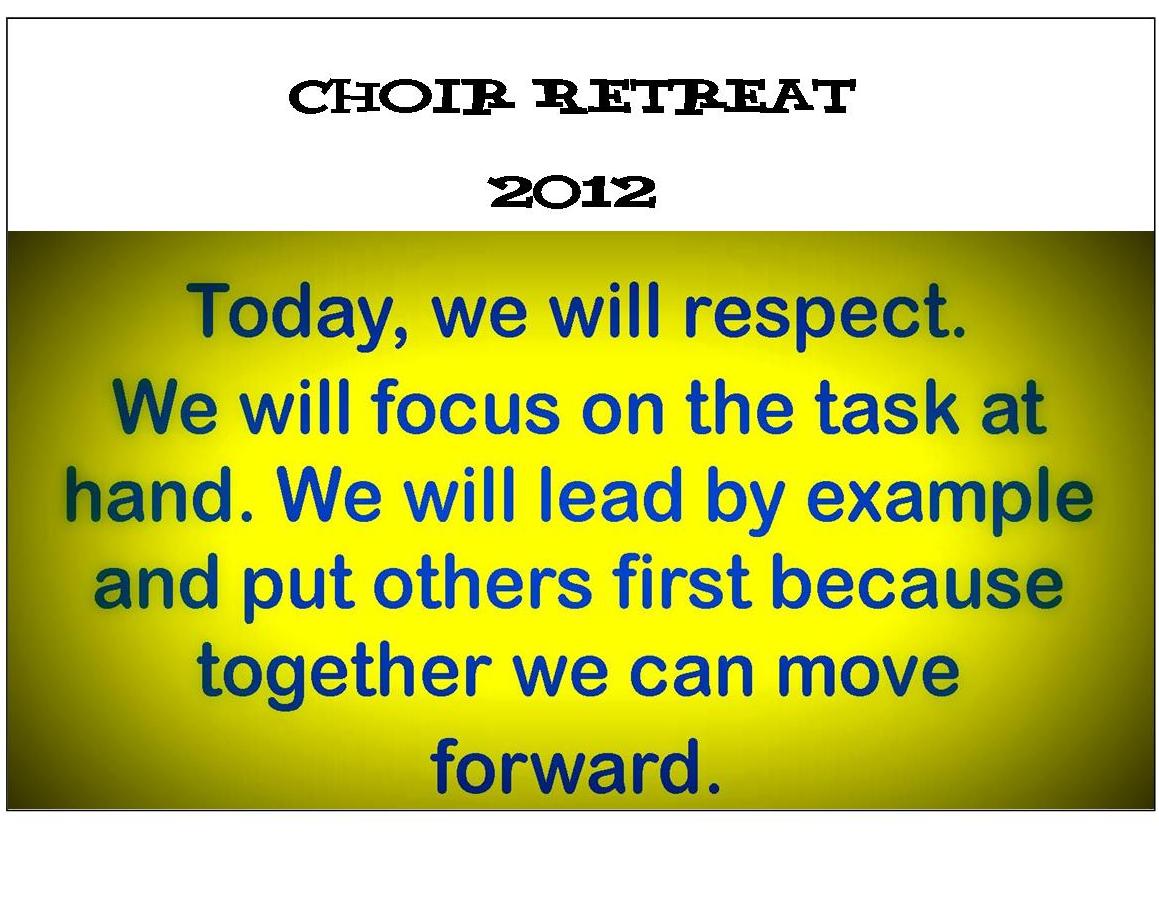Relationships can be difficult to nurture and nourish if we only see students on Sunday mornings, afternoons, or Wednesday evenings. We, as directors/ministers, have to make time during the week to invest in relationships with students and ministry volunteers. Here are some thoughts about how to do this in an intentional way. There are plenty of other ideas out there, but these are the ones that seemed to have worked best for me.
- You have to make time to use your relational skills. Block out time in your day/schedule where you can have an extended conversation with someone if the opportunity arises. Yes, students are busy and so are you, but it is important to have some time set aside that is solely for relationship building.
- Consider having regular meetings with members of the choir or ministry support team. This could be in one of the following ways:Take time in rehearsals for WORDS OF AFFIRMATION. In front of the choir, team, etc. look a student in the eye and tell him/her why you are thankful for him/her. You can’t imagine the spirit and unity that brings to the group, and what it does for that person’s self-esteem and confidence.
-
- Staff/officer meetings
- Lunch with groups of students at school
- Afternoon coffee or “coke breaks” with students/volunteers
- Have students or ministry volunteers over to the house once a month/quarter – perhaps in a birthday social. (Recognize birthdays during that month or quarter.)
-
- Likewise, offer opportunities in rehearsals (or when on ministry tours/outings) for choir members to give words of affirmation to each other. Let them stand up (“popcorn” style) and affirm other choir members.
- Birthday socials (referenced above). Invite students/ministry team members with birthdays to come over for a meal during their bday month/quarter. Send out invitations. You get to know them better and they get to know other people with birthdays in that same month/quarter.
- Take time to call (not text) students/volunteers on their birthdays.
- Take the most traveled path on days of corporate worship. See and interact with the most people – not avoid the most people (GUILTY AS CHARGED). YOU HAVE TO MAKE TIME TO DO THIS. It’s so hard on busy Sundays and Wednesdays.
- Send notes/cards to ministry team members randomly, but especially following big events, times where they have given extra time for the ministry.
- Discover and understand the five love languages as described by Gary Chapman. Which one are you? It can be helpful to wonder what might the love language be of the team members around you. Obviously, use discretion.Ask seven (or however many) church members to come alongside you as a prayer warrior or “ministry cheerleader.” To have a specific, identified base of support within your church community is invaluable. These people can invest in you and those in your ministry and you can go to them with questions, concerns, needs, or joys to share. It allows others to have an “investment” in the ministry you lead. Then ask each of them to find seven people to also be prayer warriors for you, your family, and your ministry. This circle of prayer and support grows exponentially.
- Words of Affirmation
- Physical Touch
- Gift Giving
- Quality Time
- Acts of Service
- Consider finding 2-3 same gender individuals (this can be a group of students, parents of students, or even ministry volunteers) to join you in a “prayer trio/quartet.” Meet once a week, open in prayer, then discuss a book that you are reading as a group, whether a chapter from a book of the Bible or a theologically challenging book. Also, have each person pinpoint three people that don’t know Christ or that you would like to pray for and commit together to pray for them. Finally, consider doing a service/mission project together as a trio/quartet sometime during the year.
- Never deal with any relational conflict DIGITALLY. It must be handled face to face.









